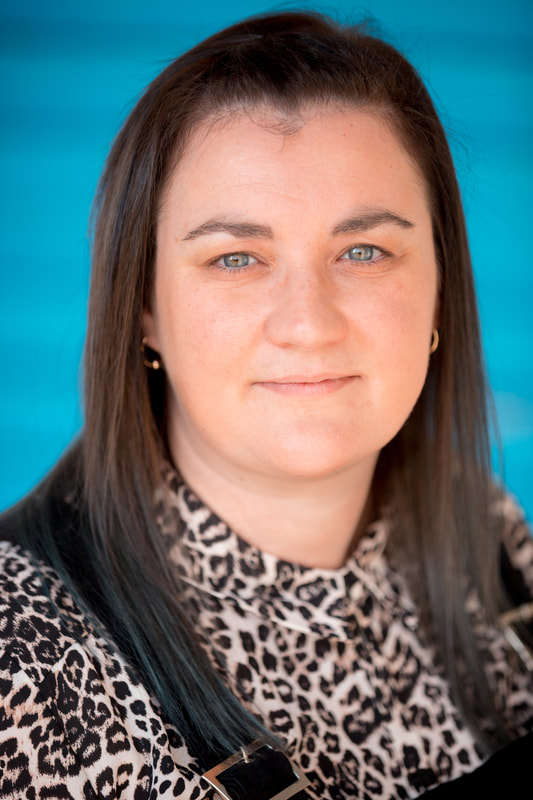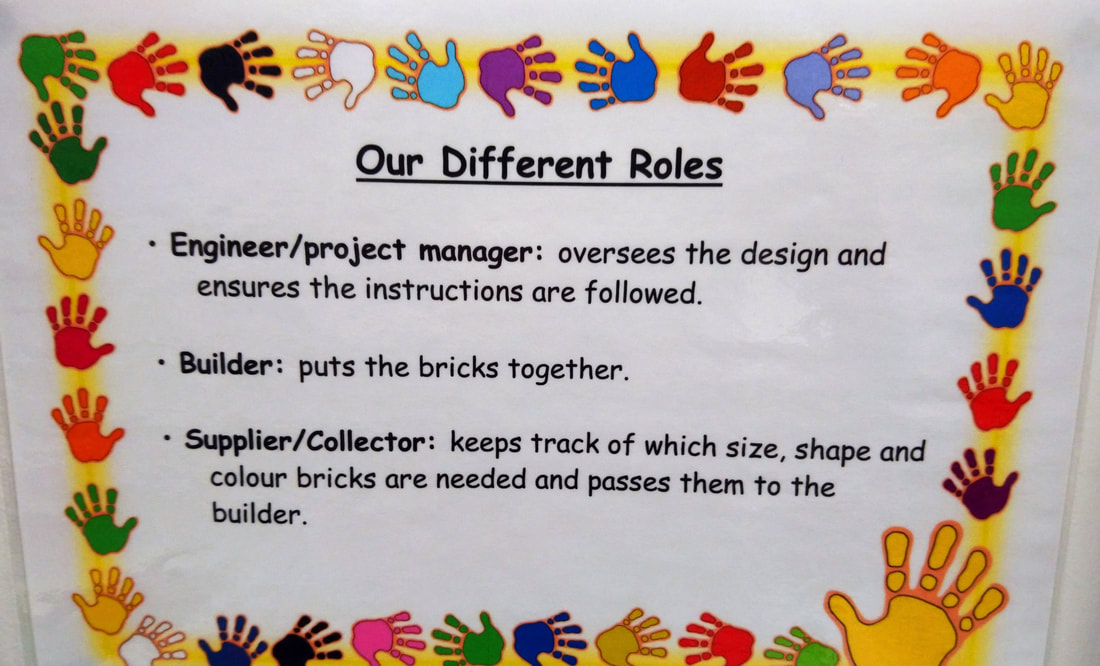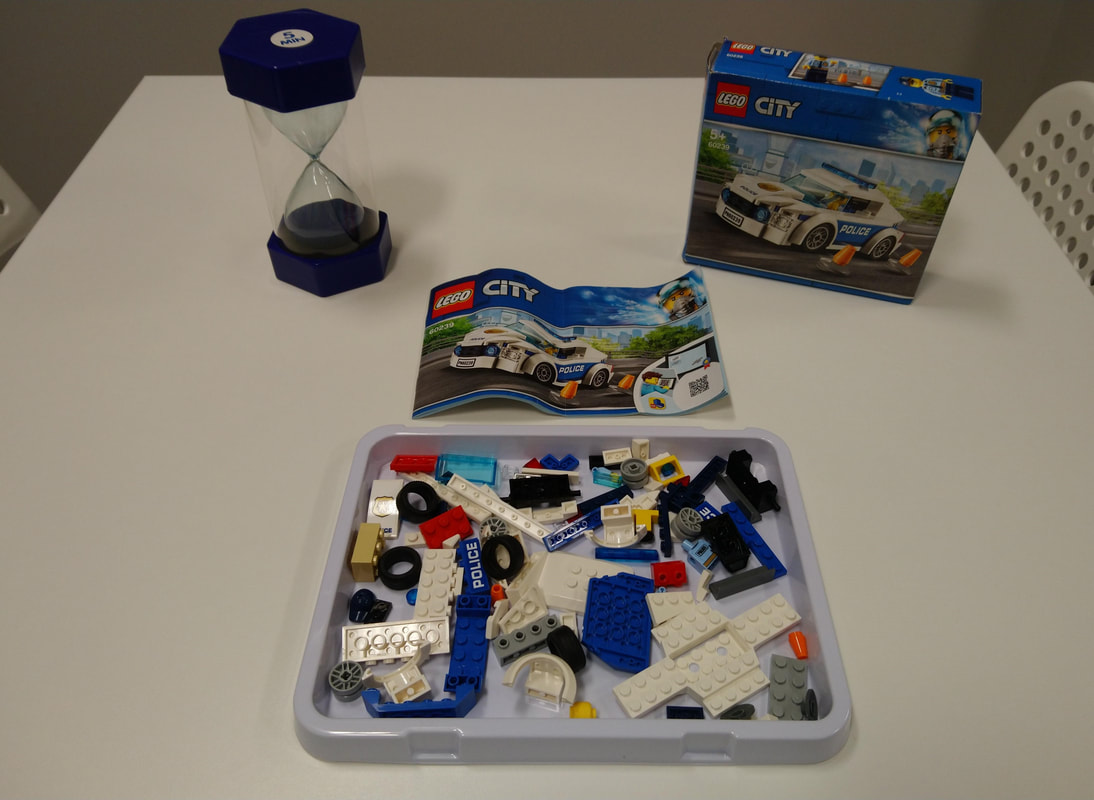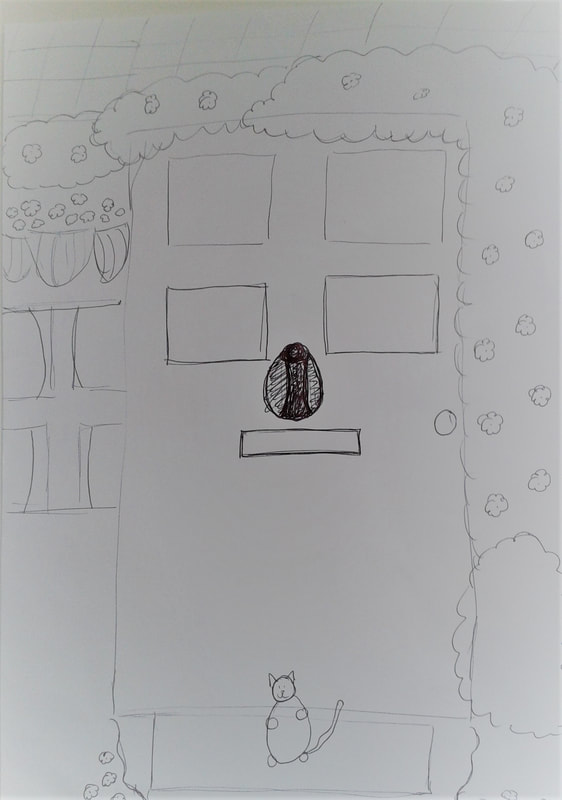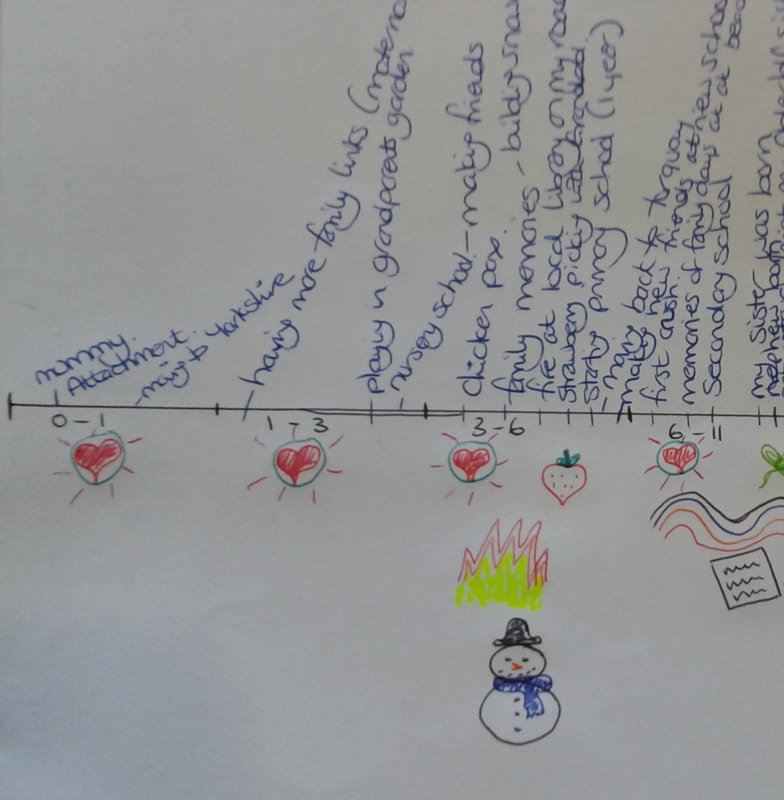Sequoia Therapy

Sequoia Therapy is a way of working with a child/young person’s natural language of play and creativity. Reflective techniques and the use of creative mediums; paint, clay, sand trays, music, puppets, drama, therapeutic storytelling, creative visualisation, dance, and movement are available to help the child/young person to explore their feelings, thoughts, or behaviours.
Children will often play through their problems and difficulties far more easily than they would talk about them. I am passionate about helping children to lead happy and fulfilled lives through the use of a child’s natural play environment to help them to understand and play through their worries and difficulties.
Working with parents and families to provide the necessary knowledge, tools, guidance and support, working together to develop healthier patterns of relating and communicating. Using the therapeutic parenting approach and principles of PACE supporting parents to make sense of their child’s behaviour and remain calm and emotionally available to their child, even at very difficult times.
“helping children to be the best that they can be”
Children will often play through their problems and difficulties far more easily than they would talk about them. I am passionate about helping children to lead happy and fulfilled lives through the use of a child’s natural play environment to help them to understand and play through their worries and difficulties.
Working with parents and families to provide the necessary knowledge, tools, guidance and support, working together to develop healthier patterns of relating and communicating. Using the therapeutic parenting approach and principles of PACE supporting parents to make sense of their child’s behaviour and remain calm and emotionally available to their child, even at very difficult times.
“helping children to be the best that they can be”
Robyn FernsMy name is Robyn Ferns, I am a qualified Play Therapist.
My practice is trauma informed and I have 14 years’ experience working in early years; schools and a children’s home. I have experience working with challenging behaviours and neurodiversity such as ADHD and Autism. Throughout my career I have worked with children, young people and families who have experienced a wide range of life affecting difficulties such as domestic violence, alcoholism/drug use, neglect, physical and emotional abuse, child sexual exploitation (CSE) and rape/sexual assault victims and perpetrators. I have worked with diverse family dynamics and challenging relationships. I am passionate about helping children and young people lead happy and fulfilled lives. I use play a child’s natural form of communication, to help them to understand and play through their worries and difficulties and find ways to heal themselves. I am a registered member of the British Association of Counsellors and Psychotherapist (BACP). I work within their ethical framework, and enables you to search for a therapist in your area and to check the Credentials of Registrants. My BACP registration means I have regular supervision and undertake ongoing Continuing Professional Development. I have full indemnity insurance and public liability insurance. I am fully DBS checked. Key things I offer- Assessment- suitability to therapy and what can be worked on for short or long term and address it. Building resilience and enhancing self-esteem and confidence. Improving concentration. Understanding emotions and naming them. Working with parents/carers with strategies to improve on areas where your child may be struggling. Working in liaison with the child’s school to support the child and family. |
Qualifications-
Post Graduate Diploma in Play Therapy Certified AutPlay Therapy Provider Dyadic Developmental Psychotherapy (DDP) Level Two (DDP informed practice) Therapeutic Life Story Work Certificate in Lego Therapy Foundation in Drawing and Talking Level 5 in Leadership and Management in Children’s and Young People’s Services Child Protection |
Play Therapy
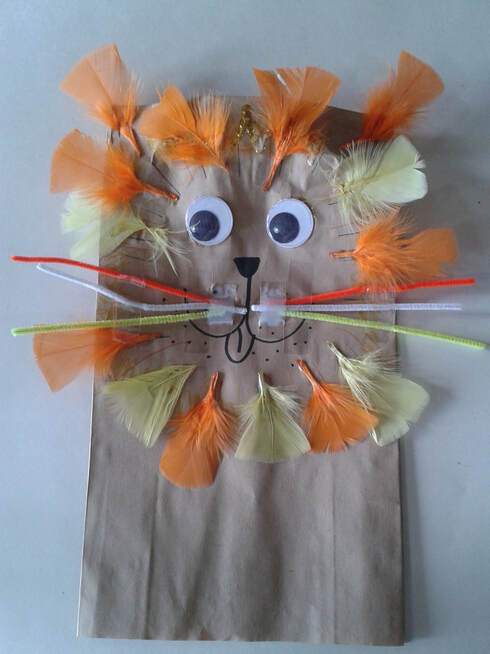
Play Therapy helps children understand muddled feelings and upsetting events that they have not had the chance to sort out properly. Rather than having to explain what is troubling them, as adult therapy usually expects, children use play to communicate at their own level and at their own pace, without feeling interrogated or threatened.
Play is vital to every child’s social, emotional, cognitive, physical, creative and language development. It helps make learning concrete for all children and young people including those for whom verbal communication may be difficult.
Play Therapy helps children in a variety of ways. Children receive emotional support and can learn to understand more about their own feelings and thoughts. Sometimes they may re-enact or play out traumatic or difficult life experiences in order to make sense of their past and cope better with their future. Children may also learn to manage relationships and conflicts in more appropriate ways.
The outcomes of Play Therapy may be general e.g. a reduction in anxiety and raised self-esteem, or more specific such as a change in behaviour and improved relations with family and friends.

Benefits of Play Therapy
• It helps the child- through play the child will often process their deepest unconscious emotions, enabling them to make sense of often harrowing experiences. Through this regular intervention a child can often undergo dramatic change as their behaviour alters and low self-esteem is often boosted.
• In many cases the process enables children to “find themselves” as they gain the ability to cope with their life and its challenges. Through play therapy the child can practice thinking differently, acting differently, being different. Achieving this healing so young is vital, helping not only to alleviate their immediate concerns, but delivering an enhanced likelihood of emotional stability into adulthood.
• It helps the child’s family and friends- play therapy’s potential to heal a young person can lead to stronger, more positive relationships with those around them, which further builds and reinforces their emotional wellbeing. The positive change in a perhaps previously behaviourally challenging child is welcomed by their peers and adults alike.
• At home- as the child develops through their therapy, the positivity they can gain from the sessions can lead to different behaviour which potentially strengthens family bonds, making for a calmer, more positive home environment.
• At school- the child’s increased self-esteem can enable them to interact differently with classmates and teachers. This can potentially enhance their social skills and confidence, as well as having a academic impact by improving concentration and focus, which builds more positive relationship with teachers and further increases their self-esteem.
• According to research* up to 83% of children receiving play therapy to Play Therapy UK’s Standards reported positive change.
• (*”An effective way of promoting children’s well-being and alleviating emotional, behavioural and mental health problems (PTUK 2012)” a study of 8,000 cases for Play Therapy UK.)
• It helps the child- through play the child will often process their deepest unconscious emotions, enabling them to make sense of often harrowing experiences. Through this regular intervention a child can often undergo dramatic change as their behaviour alters and low self-esteem is often boosted.
• In many cases the process enables children to “find themselves” as they gain the ability to cope with their life and its challenges. Through play therapy the child can practice thinking differently, acting differently, being different. Achieving this healing so young is vital, helping not only to alleviate their immediate concerns, but delivering an enhanced likelihood of emotional stability into adulthood.
• It helps the child’s family and friends- play therapy’s potential to heal a young person can lead to stronger, more positive relationships with those around them, which further builds and reinforces their emotional wellbeing. The positive change in a perhaps previously behaviourally challenging child is welcomed by their peers and adults alike.
• At home- as the child develops through their therapy, the positivity they can gain from the sessions can lead to different behaviour which potentially strengthens family bonds, making for a calmer, more positive home environment.
• At school- the child’s increased self-esteem can enable them to interact differently with classmates and teachers. This can potentially enhance their social skills and confidence, as well as having a academic impact by improving concentration and focus, which builds more positive relationship with teachers and further increases their self-esteem.
• According to research* up to 83% of children receiving play therapy to Play Therapy UK’s Standards reported positive change.
• (*”An effective way of promoting children’s well-being and alleviating emotional, behavioural and mental health problems (PTUK 2012)” a study of 8,000 cases for Play Therapy UK.)
What to expect
If you were to contact me:
• Initially I would need some information from you about your concerns regarding your child and the services you require, via email or phone.
• After this initial contact we can arrange a suitable time for a meeting to discuss the service you are interested in. This gives you the chance to ask any questions you have and for me to give you a clear overall understanding about Play Therapy, the assessments taken, contracting and what is needed to run the sessions, i.e. a room that is suitable and confidential.
• Once we are clear about the aims of the work, we can set up an assessment, I can meet with the parents/school to gather further background information, in a suitable setting. Build an overall view of your child’s life.
• Assessment- is child led play specifically looking for areas the child may be struggling with. At the end of the assessment, I make a short report and if appropriate meet with parents/school, sharing recommendations, what is able to be done and the time frame.
• Subject to agreement, I would then take on the child for play therapy or recommend to other services where possible. If we go ahead with offering your child play therapy sessions, a contract and parental consent form will be signed after going over the details of the service being offered.
• It is usual that children’s work is kept safely by me and it is given to the child at the end of the sessions/work.
AutPlay
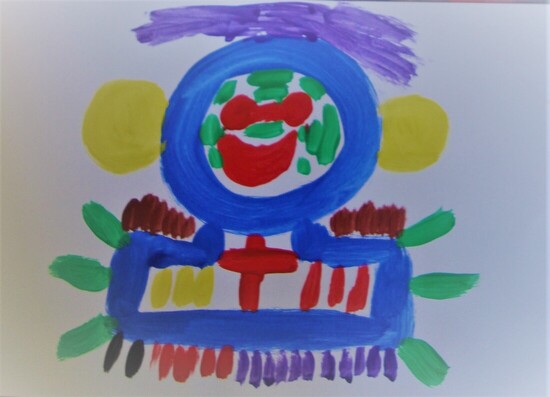
AutPlay® Therapy was created by Dr. Robert Jason Grant and is a play and behavioural therapy approach to working with children and families affected by autism, attention deficit hyperactivity disorder, dysregulation issues, and other neurodevelopmental disorders. It integrates therapeutic models of play therapy and behavioural therapy along with relationship development approaches together in a collaborative model to assist children and adolescents in gaining needed skills and abilities. AutPlay Therapy is a combination of behavioural and developmental methodology that is both therapist-led and parent-led.
AutPlay Therapy has Shown Effective Treatment Outcomes for the Following Areas:
• Increasing Emotional Regulation Ability
• Improving Social Skills and Functioning
• Improving Relationship Development and Connection
• Reducing Anxiety Levels
• Improving Sensory Processing Challenges
• Increasing Concentration, Focus, and Attention
• Reducing Unwanted Behaviours
• Improving the Parent/Child Relationship
AutPlay Therapy provides a screening and assessment process to evaluate where a child’s level is at in terms of basic functioning and skill development in emotional regulation, social functioning, and relationship development. This procedure allows the therapist to direct specific play therapy interventions to address each individual child’s skill deficits. AutPlay Therapy is appropriate for children and adolescents with an autism disorder, attention deficit hyperactivity disorder, dysregulation issues, neurodevelopmental disorders, and developmental disabilities from severe to mild impairment. AutPlay is appropriate for children ages 3-18.
In AutPlay Therapy, parents participate equally in therapy with their children and become co-change agents with the therapist in helping their children develop needed skills. AutPlay® Therapy incorporates a parent training component which teaches parents how to conduct structured play therapy interventions at home. The therapist is training the parents to do structured play therapy interventions at home with their child. These interventions are typically chosen by the therapist (although parents can participate in choosing interventions) as interventions to use to help develop skill deficits in the six target areas covered in AutPlay; emotional regulation ability, social skills development, connection, sensory processing struggles, anxiety, and behavioural challenges. The Therapist continues to meet with parents and train parents in implementing the interventions at home until treatment goals have been met.
AutPlay Therapy has Shown Effective Treatment Outcomes for the Following Areas:
• Increasing Emotional Regulation Ability
• Improving Social Skills and Functioning
• Improving Relationship Development and Connection
• Reducing Anxiety Levels
• Improving Sensory Processing Challenges
• Increasing Concentration, Focus, and Attention
• Reducing Unwanted Behaviours
• Improving the Parent/Child Relationship
AutPlay Therapy provides a screening and assessment process to evaluate where a child’s level is at in terms of basic functioning and skill development in emotional regulation, social functioning, and relationship development. This procedure allows the therapist to direct specific play therapy interventions to address each individual child’s skill deficits. AutPlay Therapy is appropriate for children and adolescents with an autism disorder, attention deficit hyperactivity disorder, dysregulation issues, neurodevelopmental disorders, and developmental disabilities from severe to mild impairment. AutPlay is appropriate for children ages 3-18.
In AutPlay Therapy, parents participate equally in therapy with their children and become co-change agents with the therapist in helping their children develop needed skills. AutPlay® Therapy incorporates a parent training component which teaches parents how to conduct structured play therapy interventions at home. The therapist is training the parents to do structured play therapy interventions at home with their child. These interventions are typically chosen by the therapist (although parents can participate in choosing interventions) as interventions to use to help develop skill deficits in the six target areas covered in AutPlay; emotional regulation ability, social skills development, connection, sensory processing struggles, anxiety, and behavioural challenges. The Therapist continues to meet with parents and train parents in implementing the interventions at home until treatment goals have been met.
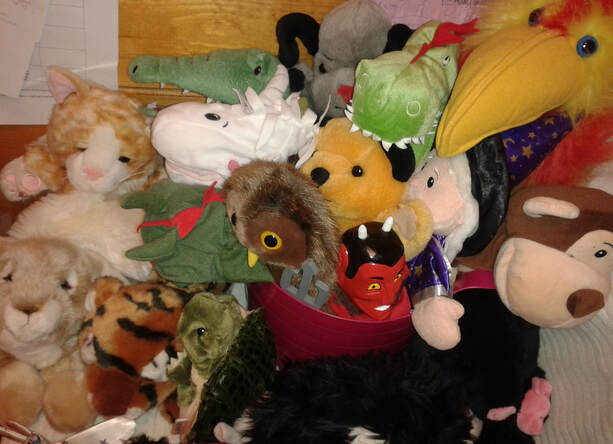
What to expect
If you were to contact me:
• Initially I would need some information from you about your concerns regarding your child and the services you require, via email or phone.
• After this initial contact we can arrange a suitable time for an intake meeting to discuss the service. This gives you the chance to ask any questions you have and for me to give you a clear overall understanding about AutPlay Therapy, the assessments taken and contracting. I will gather background information and all relevant documents such as sensory or psychological evaluations and ask you to complete forms to aid with your child’s assessment.
• There will be two assessment sessions through observations and one to one play session’s with your child.
• After the assessments we will have a therapy plan meeting to discuss the assessments, treatment goals and decide logistics how to conduct parent and child sessions, moving into the directive intervention phase.
If you were to contact me:
• Initially I would need some information from you about your concerns regarding your child and the services you require, via email or phone.
• After this initial contact we can arrange a suitable time for an intake meeting to discuss the service. This gives you the chance to ask any questions you have and for me to give you a clear overall understanding about AutPlay Therapy, the assessments taken and contracting. I will gather background information and all relevant documents such as sensory or psychological evaluations and ask you to complete forms to aid with your child’s assessment.
• There will be two assessment sessions through observations and one to one play session’s with your child.
• After the assessments we will have a therapy plan meeting to discuss the assessments, treatment goals and decide logistics how to conduct parent and child sessions, moving into the directive intervention phase.
LEGO THERAPY
This texts is to help your site visitors with pressing questions.
|
Lego Therapy falls within the ‘play based’ therapy methods for children. These methods apply the therapeutic benefits of play and build on the natural way that children learn about themselves and their relationships in the world around them. Through play-based therapy, children learn to communicate with others and express their feelings, learn a variety of ways of relating to others, modify their behaviour and develop their problem-solving skills. The Lego System of bricks is a highly organised, systematic, and predictable toy. This is therefore highly motivating for children with ASD (Autistic Spectrum Disorder) as it removes the unpredictable and ever-changing concepts that occur during free play. This allows the children to feel calm, regulated and engaged during play.
Lego therapy is delivered as a therapy group where children learn to play together while developing a range of specific skills. LEGO® therapy has been proven to be an effective way for children with social difficulties associated with Autism, Asperger Syndrome, Anxiety, Depression or Adjustment Disorders to improve and practice their social interaction and communication skills. Improvements in social competence enable students to sustain lasting friendships and reach their highest potential. Young people work together to build LEGO® models and through this have the opportunity to develop social skills such as turn taking, collaboration and social communication. LEGO®-based therapy can be used individually or in groups. Natural opportunities for developing social competence are facilitated by the therapist. Key to this approach is how engaging and enjoyable it is for the participants! Building LEGO® collaboratively is great fun, and young people develop social skills while enjoying themselves. |
What to Expect• Initially I would need some information from you about your concerns regarding your child and the services you require, via email or phone. I will ask you to fill out a referral form.
• After this initial contact we can arrange a suitable time for yourself and your child to visit a session and see it in action. • There will be an intake session, one to one Lego Therapy session with your child and the therapist. Working through the Lego Therapy roles and routine of the session before moving on to your child joining a Lego Therapy group. |
Other Services
Drawing and TalkingDrawing and Talking is a child-centred therapy focusing on prevention, early intervention, and recovery of mental health issues. Drawing and Talking is a safe serial drawing technique for use with children and young people who have suffered trauma or have underlying emotional difficulties affecting their mental health and well-being. The technique is based on Jungian and Attachment (Bowlby) theories. This is a 12-week intervention, with one 30-minute session, on the same day and time each week. |
Therapeutic Life Story WorkFor children who have been removed from the care of their birth family and suffered placement breakdowns or transitions, their life history can be extremely fragmented, leaving the child feeling lost and with no sense of belonging (Perry, 2012). This can impact hugely on their well-being and make the child very vulnerable in their present and future. Therapeutic Life Story Work empowers a child’s voice and provides them with a safe space to feel and express their thoughts and emotions when making sense of past experiences and the relationship these have to their current thoughts, feelings, and behaviours. When a Therapeutic Life Story approach is conducted with care, thought and sensitivity, it offers a space for children and young people to start rebuilding the pieces of their lives that have been discarded, lost, or damaged. It offers a therapeutic space to give children a voice in their world and have it respected and valued. The ability for them to do this alongside their carer is crucial in building upon their attachment, allowing them to share their trauma experiences in a safe way with a carer who is able to show acceptance of both the child’s inner world, and external reality.
|
Parent/Carer's ConsultationWorking with parents and families to provide the necessary knowledge, tools, guidance and support, working together to develop healthier patterns of relating and communicating. Using the therapeutic parenting approach and principles of PACE supporting parents to make sense of their child’s behaviour and remain calm and emotionally available to their child, even at very difficult times. |
Download my Referral Form
| referral_form.pdf | |
| File Size: | 169 kb |
| File Type: | |
If you can not open a PDF file, download ADOBE ACROBAT from HERE
Contact Robyn Ferns
|
|
Palace Avenue Business Centre
|
|
AutPlay® Therapy is a play therapy approach to working with children and adolescents with autism and other neurodevelopmental disorders
|
The Leading Professional Association For Members Of The Counselling Professions In The UK. We Are The British Association For Counselling And Psychotherapy. Resources For Counsellors. Qualified Counsellors. BACP Membership. Local Therapists.
|
